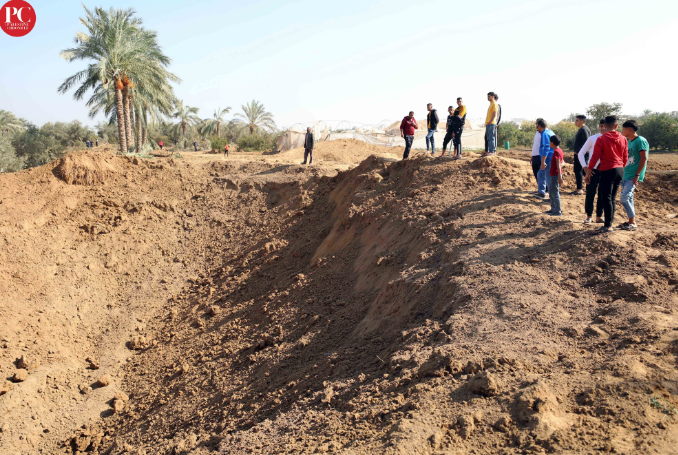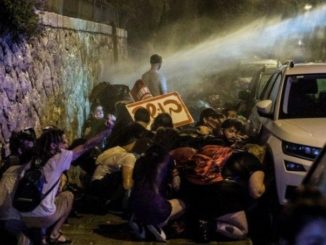
Throughout the year, the Israeli army regularly attacks sites in the besieged Gaza Strip. Bombs fall heavily on vacant lands supposedly belonging to the Palestinian Resistance.
These sites, however, are located in close proximity to populated areas. During one of these attacks, Muhammad Shkoukani, a quadriplegia patient, was lying in his wooden bed.
Muhammad is completely paralyzed but he can hear and see well.
Trembling in Bed
“Whenever Muhammad hears the bombardments, he gets very frightened, and his mental health deteriorates. The bombs scare him and he starts trembling in his bed,” Muhammad’s sister Shifaa told the Palestine Chronicle.
“When the area is targeted, he feels angry and depressed, and we try our best to reassure him even though we are anxious, too.”
Besides the psychological impact, the bombings also cause damage to property.
“I remember one time when our windows broke and the smoke from the explosion filled the house, suffocating us,” Shifaa recalled.
‘Like an Earthquake’
Ayat Al Sammak, 27, is a mother of a two-year-old child. She lives with her family near a site belonging to the Palestinian Resistance, which Israel bombs regularly.
“I only want to live in peace, but when I hear the sounds of war, I get scared to death,” Ayat told us.
The site is heavily bombed during both Israeli wars and regular escalations.
“The sound of bombing is like an earthquake: deafening and frightening, especially when it happens at night when we cannot escape.”
Ayat’s child, Amer, is psychologically affected by the repeated bombardments, and the fear does not vanish when the bombs stop falling.
“Every time I call him, even whispering, he gets frightened and runs to hug me. Even thunder scares him,” Ayat explained.
Ayat’s house is located 100 meters from the site. Her house has been damaged many times in previous Israeli attacks. In one of these bombings, the kitchen tiles and the windows fell on the ground while the walls cracked.
“Last winter we woke up and we saw water flowing into our house. We realized that one of the drains was blocked by shrapnel.”Due to this difficult situation, many families were forced to leave their homes and move to a different place.
“My neighbor, Ahed, left her home with her three children. They escaped from the devastating effects of the bombing,” Ayat said. Unfortunately, for Ayat, she has nowhere else to go.
‘Nowhere to Go’
In a similar situation to Ayat, Mariam Souissi lives with her 70-year-old husband and her son in a small house, located only 50 meters away from a Resistance site in the western Gaza Strip.
Israel often bombs sites that are located in proximity to Mariam’s home, to the point that her life was turned into “an ongoing horror,” she told us.
“The Israeli jets repeatedly bomb this area, every time there is an escalation against Gaza,” the 67-year-old woman said.
“When this area is targeted by Israeli strikes, we feel as if the bombing was inside our house. We try to escape, looking for a shelter, without knowing where to go”.
“The truth is, every place in Gaza is a potential target, and we know that,” she added.
Like many other buildings, Mariam’s house was partially damaged in the 11-day aggression on the Gaza Strip in May 2021. The windows and doors of Mariam’s house were broken and the walls of the house cracked.
Mariam and her husband were forced to flee their house and were hosted by her brother during the Israeli raids.
“During my stay at my brother’s house, I couldn’t help but think of my house, because I have no other place in which I can live,” Mariam said.
“I am always in fear because I still remember an Israeli bombing in 2008, which completely destroyed the floor above us, seriously damaged our house, and ruined much of our possessions”.

– Nada Al Kahlout is a Gaza-based freelance writer. We Are Not Numbers contributed this article to The Palestine Chronicle.







